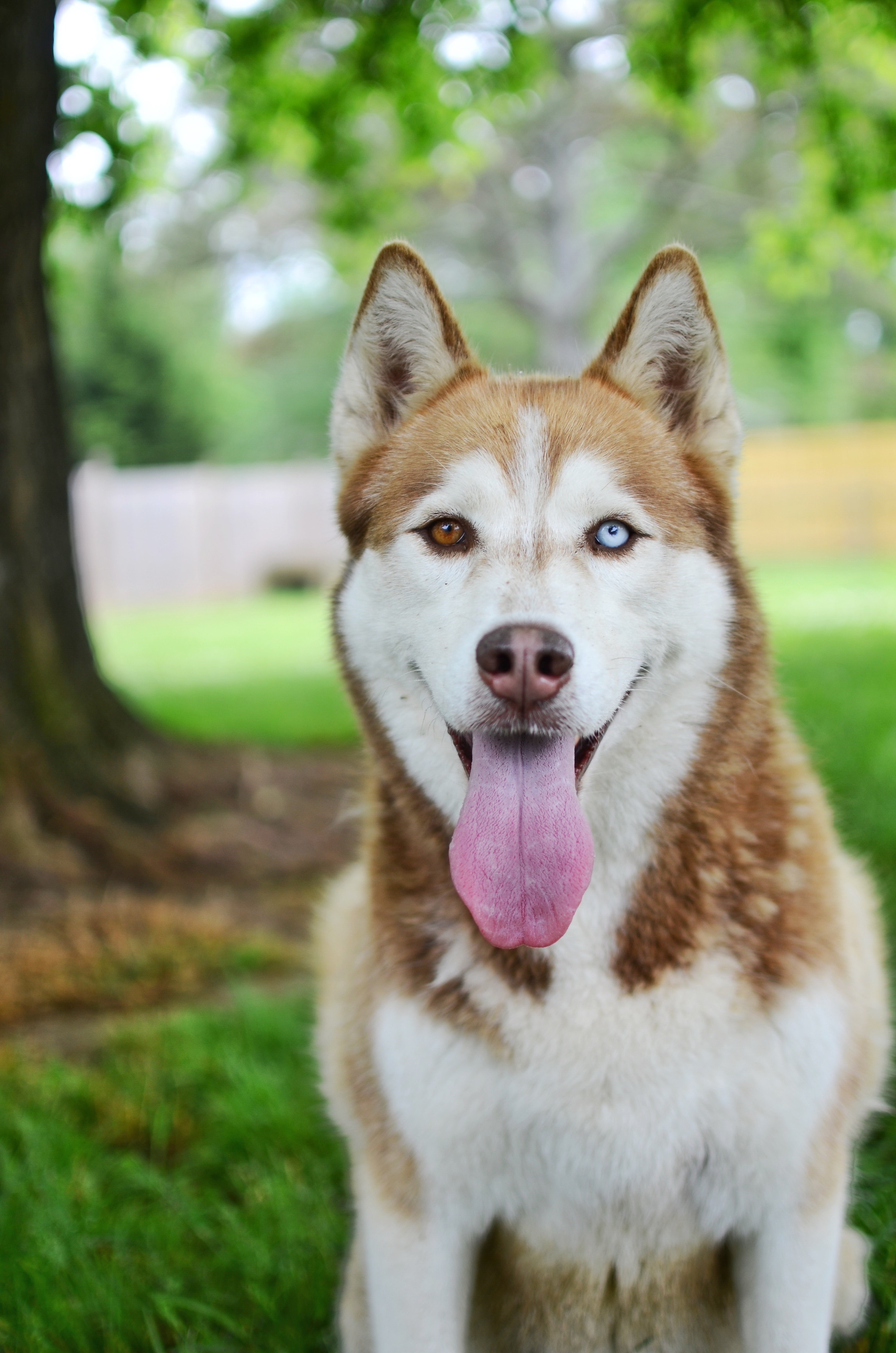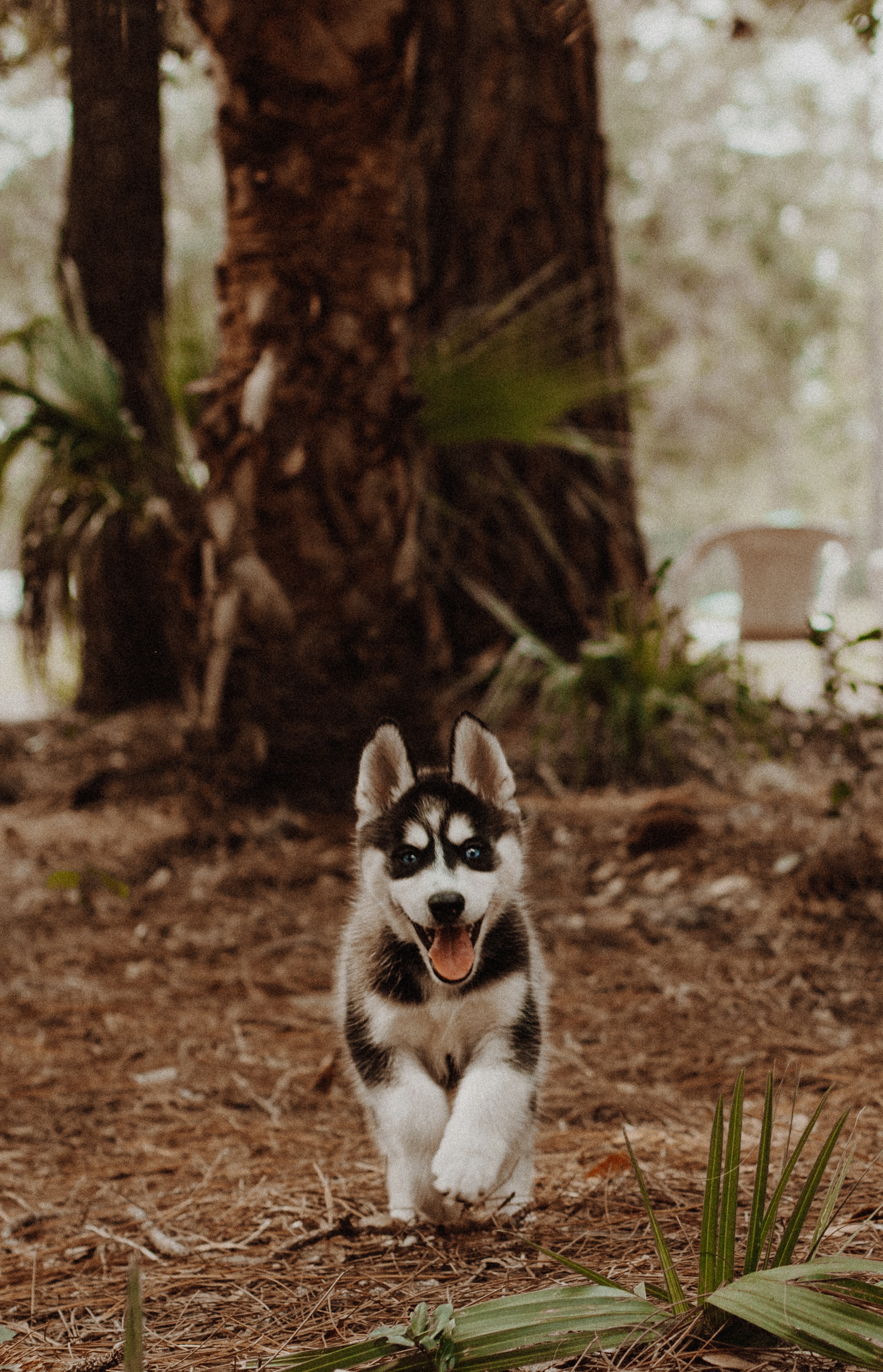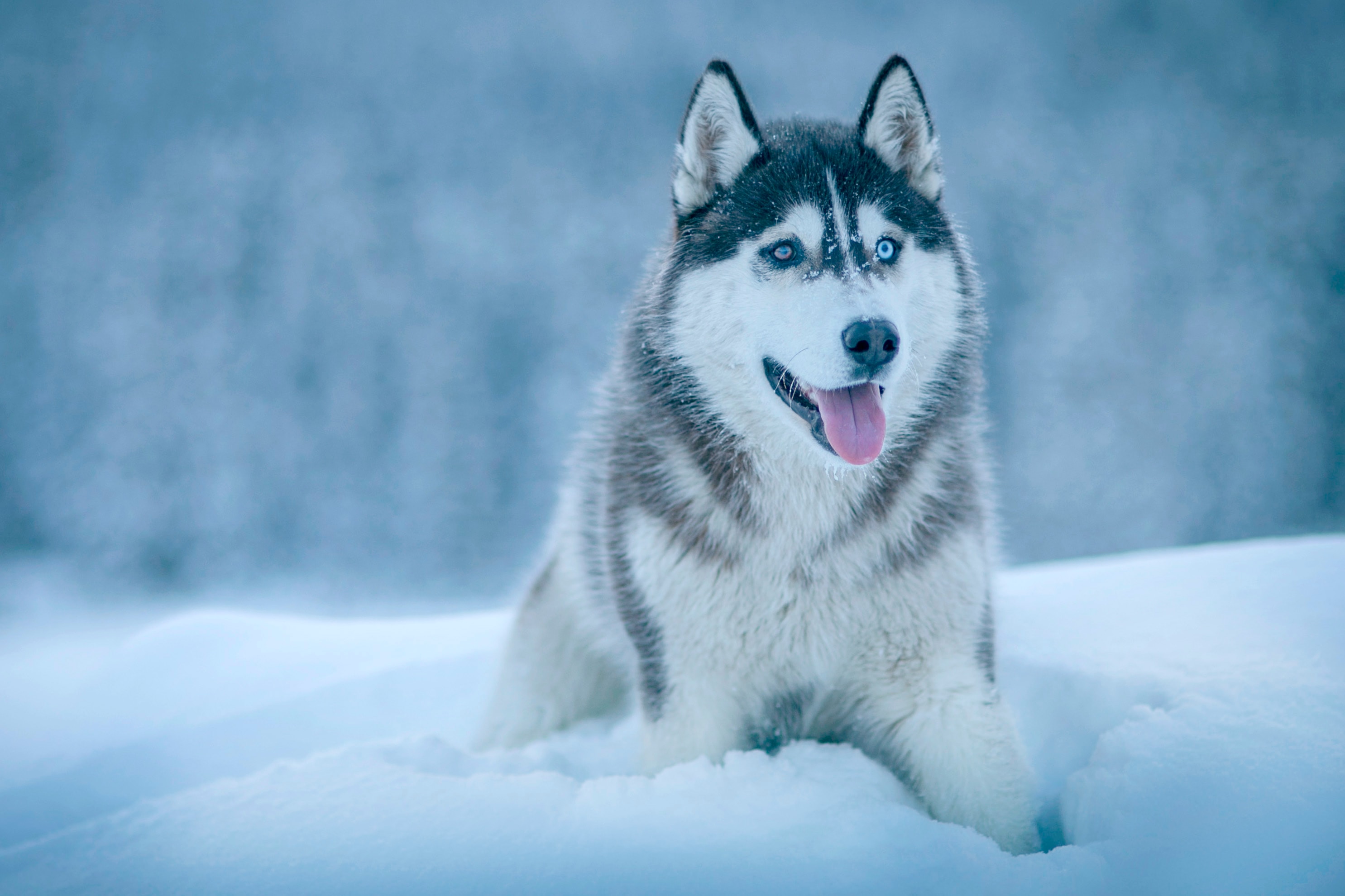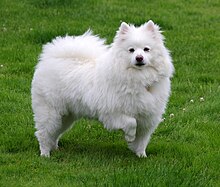
The Siberian Husky, known for its striking blue eyes and distinctive wolf-like appearance, is a breed rooted in the icy terrains of Siberia where it was historically used by the Chukchi people for sled-pulling and companionship. A blend of endurance and playful spirit, these dogs are more than just their mesmerizing looks; they’re also characterized by a high energy level and a keen intelligence. While they require regular exercise and mental stimulation, Siberian Huskies are often lauded for their friendly disposition and gentle nature with families. Their thick double coat, iconic for patterns and shades of black, gray, and red, makes them uniquely equipped for cold environments but also calls for dedicated grooming.
The Siberian Husky is a member of the AKC Working Group.
Breed Characteristics
| Dog Breed | Siberian Husky |
| Breed Popularity (AKC) | 21 |
| Country of Origin | Russia |
| Personality | Independent, energetic, intelligent, playful, strong |
| Life Expectancy | 12-14 yrs |
| Height | 20-24 in |
| Weight | 35-60 lbs |
| Color | Black, White |
| Coat | Thick double coat |
| Shedding | Seasonal |
| Grooming | Weekly Brushing |
| Health Problems | Hip dysplasia, eye problems, hereditary myopathy |
| Trainability | Independent |
| Exercise Needs | Energetic |
Siberian Husky History
Originating from the northeastern part of Siberia, the Siberian Husky is a breed developed by the Chukchi people. These dogs were bred for their endurance and to haul light loads over vast distances in cold climates. With striking features and wolf-like appearances, they were brought to Alaska in the 20th century for sled-racing competitions.
Temperament
Siberian Huskies are characterized by their friendly demeanor and high energy level. They are intelligent and playful, making them enjoyable companions, but can be a bit challenging to train due to their independent nature. Their behavior towards strangers is generally amicable, and they aren’t typically aggressive. Early socialization is crucial to manage their prey drive, especially around smaller animals. Their vocalizations can range from barks to unique ‘talking’ sounds. While affectionate with their families, their tolerance to solitude is moderate, often preferring the company of other dogs.
Remember, while breed traits provide a general idea, individual dogs can have personalities that differ from the breed standard. Always spend time getting to know the dog and ensure their needs and temperament align with your lifestyle.
Grooming Requirements
Siberian Huskies boast a dense double coat that sheds heavily, especially during shedding seasons. Regular brushing is essential to manage shedding and ensure the fur’s health. Bathing should only be done as needed using a good dog shampoo to avoid stripping the coat of essential oils. As always, nail trimming and ear checks should be part of the grooming routine.
Siberian Husky Health
Siberian Huskies, living 12-15 years, should be kept updated with vaccinations and flea prevention. They are prone to eye conditions like cataracts and corneal dystrophy. Huskies can also develop hip dysplasia. A balanced diet matching their energy levels and regular vet visits are vital.
Exercise Needs
Siberian Huskies are known for their endurance and high energy levels. They thrive on regular and vigorous exercise, be it through long walks, hikes, or play sessions. Fetch and agility training can be engaging activities for them. Regular visits to the dog park allow them to play and socialize. It’s essential to provide them with adequate exercise to prevent boredom and related behavioral issues.
Training
Siberian Huskies, known for their independent and energetic spirit, thrive with consistent obedience training. Structured commands help in efficient potty training, while crate training can offer them a resting space after their active routines. Addressing behavior problems early is vital given their mischievous streak. Proper socialization ensures they’re well-behaved around other pets and remain friendly.
Siberian Husky Pictures



Related Dog Breeds
More Dog Resources
Are you thinking about getting a puppy? Make sure to check out our list of important questions to ask before you adopt a puppy.
We also have many resources to help, from naming your puppy to socialization resources and training tips.
Take me back to the Ultimate Guide to Dog Breeds



